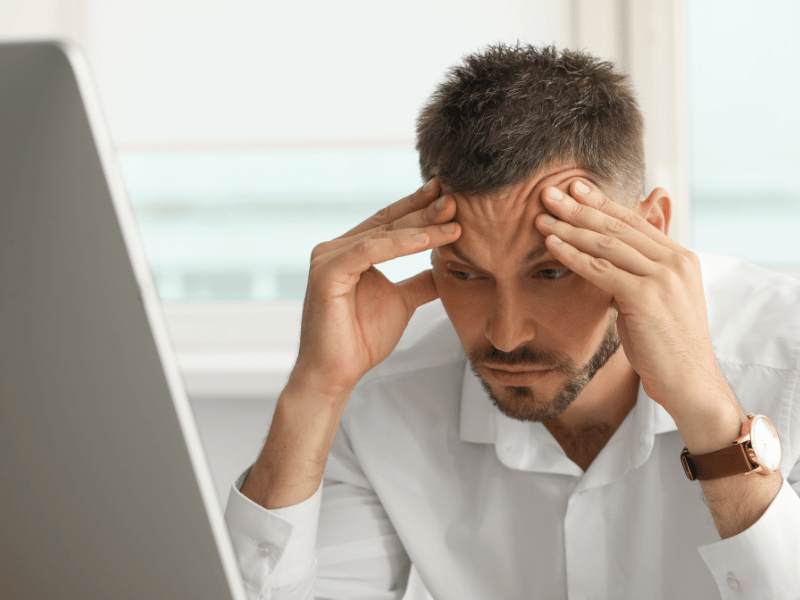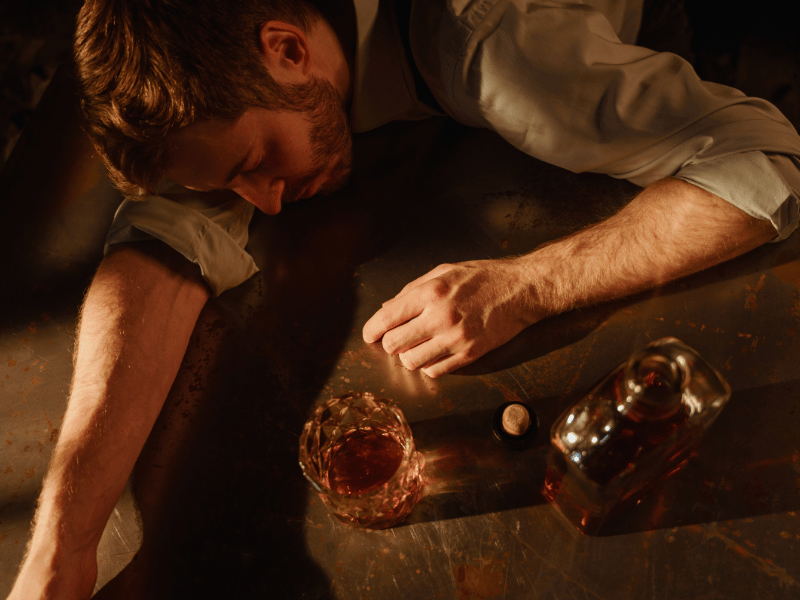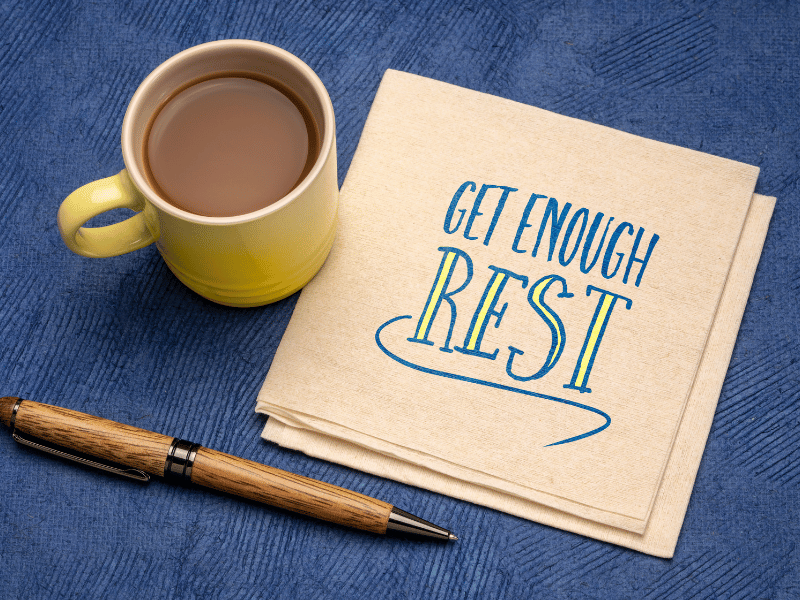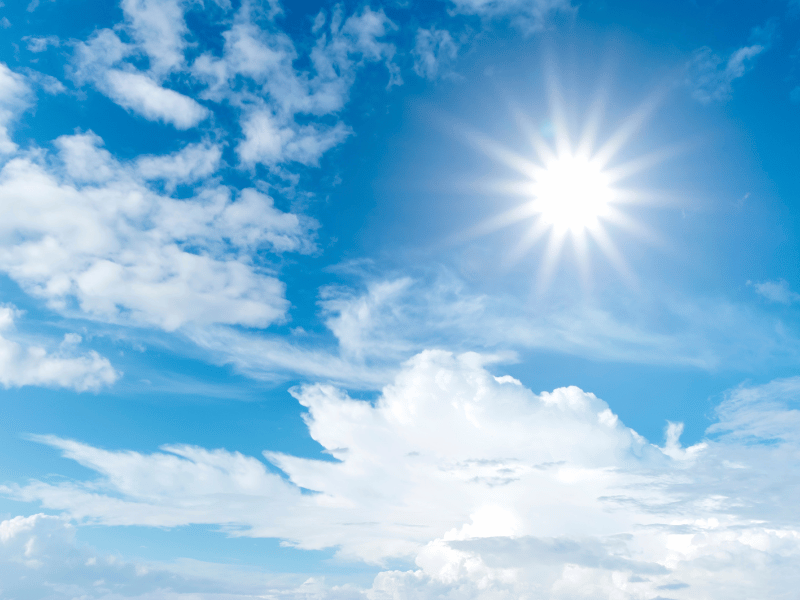


Can you go 24 hours without sleeping? While sleep deprivation effects vary from person to person, a lack of sleep is never good. When you go hours without sleep, your body and mind go through various stages of sleep deprivation. Symptoms worsen with each stage, starting with tiredness and impaired cognitive function after 24 hours.
If you’re wondering how long you can go without sleep before your mind and body start acting up, we’ve got the answers you need.

Going a full day without sleeping can result in various negative side effects. Notably, it can lead to sleep deprivation, a condition that happens when you do not get enough sleep [1].
You are most likely sleep-deprived if you can fall asleep while talking, sitting still in a public space, or sitting in traffic. Not sleeping for 24 hours or longer can also negatively affect your cognitive function, mood, and overall health. Your body and brain will start to experience significant impairment such as slowed reaction times, impaired memory, and concentration, and poor emotional regulation [2].
Not sleeping for one day is hard, but your body can make up for it. However, if you’re always not getting enough sleep, it can cause serious, long-term problems.
After being awake for 36 lengthy hours, the repercussions of sleep deprivation worsen, causing substantial strain on your body. The previous side effects escalate in severity, pushing your body into uncomfortable territory.
This stage is characterized by a series of adverse effects.
One prominent issue is hormone imbalances. When you’re sleep-deprived, hormone production and release might not function as seamlessly as it does after a good night’s rest. As a result, you might notice unexpected mood swings or feelings of overall unease.
A slowdown in metabolism is another serious repercussion. This sluggishness can lead to weight gain and other associated health problems if it becomes a recurrent pattern.
At the same time, your appetite and body temperature may fluctuate. You might not feel quite yourself simply because your body isn’t maintaining its usual balance.
High blood pressure poses a significant risk tied to prolonged wakefulness. If not managed effectively, this condition can lead to heart disease or stroke.
Alongside this, higher inflammatory markers within the body indicate an increased level of stress or potential damage.
Cognitively, your abilities start to wane after 36 hours of no sleep. Sluggish reaction times could affect daily tasks such as driving, operating machinery, or even making a cup of tea.
Moreover, speech could become difficult, making communication with others challenging.
Going 48 hours without sleep is considered to be severe sleep deprivation. At this point, it is much harder to keep your eyes open and you might experience more frequent microsleep episodes. This situation poses a significant risk to your safety, along with others around you.
Some effects of severe sleep deprivation include [3]:
After being awake for 72 hours straight, the desire for sleep becomes overwhelming. This stage is regarded as extreme sleep deprivation. It’s a sign that your brain is struggling to stay awake and needs to rest and recuperate badly.
But it’s not just about feeling sleepy. During these long periods without sleep, your perception of the world and your ability to read other people’s emotions take a significant hit. You’re likely to experience hallucinations, making interpretation of your surroundings increasingly difficult.
A study involving 12 astronauts discovered some worrying effects of staying awake for 72 hours. They experienced increased heart rates, extreme mood fluctuations, and reduced ability to process information [4].
Experiencing 24 hours without sleep can significantly impact your cognitive and physical functions.
Some of the short-term effects of acute sleep deprivation include experiencing drowsiness, being more easily distracted and forgetful, decreased performance, cognitive impairment, and a higher likelihood of being susceptible to accidents or injuries [5].

According to research that studied the effects of sleep deprivation and the effects of alcohol intoxication, it was found that after 17 to 19 hours of no sleep, the performance on some tests had indicated results equivalent to or worse than that of blood alcohol concentration (BAC) of 0.05%. Additionally, subjects who were sleep-deprived were recorded to have a much lower performance in terms of speed and accuracy.
Prolonged wakefulness beyond this period can result in performance deficits comparable to those at a BAC of 0.1%. In the United States, a BAC of 0.08% or greater is deemed as the legal intoxication level.
This comparison highlights the potential dangers of sleep deprivation, especially when it comes to activities that require you to be alert and awake (e.g. driving or operating machinery) [6], [7].
Sleep deprivation or poor-quality sleep is found to increase the risk of mental health conditions such as anxiety or depression [8].
Mentally, it can lead to mood disturbances, increased stress levels, and cognitive impairments affecting memory, attention, and decision-making. Physically, lack of sleep disrupts metabolic processes, potentially leading to weight gain, insulin resistance, and an elevated risk of type 2 diabetes.
A recent study highlighted that poor sleep habits, including insufficient sleep and irregular sleep patterns, are linked to greater fluctuations in blood sugar levels, increasing the risk of chronic diseases [9].
Chronic sleep deprivation or prolonged sleep deprivation is associated with significant long-term health risks. For example, getting less than 6 to 7 hours of sleep regularly can lead to chronic inflammation, doubling your risk for cancer as well as increasing the risk of developing Alzheimer’s disease.
Persistent lack of sleep also impairs immune function, making individuals more susceptible to infections [10]. Therefore, it is important to prioritize regular, quality sleep for better overall well-being.
After going through 24 hours without sleep, it’s natural for you to feel exhausted and require a longer recovery time.
Here are some steps on how you can recover from the effects of sleep deprivation:

After not sleeping for an extended period, you really should not be doing anything else besides getting the sleep your body needs. It is recommended for a healthy adult to get between 7 to 9 hours of sleep per night. However, if you are trying to recover from sleep loss or sleep debt, your body may need a longer sleep duration to fully recoup. According to one study, it is estimated that losing just one hour of sleep might require up to four days to bounce back fully [11].
Taking a short snooze can help diminish the effects of sleep deprivation and make you feel less drowsy. The Centers for Disease Control (CDC) suggests that the optimal nap duration should be no longer than 15 to 30 minutes. This is an ideal duration as it is just before your body transitions into a deep sleep stage.
However, if you have exceeded this duration, it is recommended that you sleep for 90 minutes (considered the end of a full sleep cycle) so that you do not experience grogginess from sleep inertia [12].
Another way to help you recover faster is by cultivating healthy sleep habits or practicing good sleep hygiene. Some good habits to practice include creating a calming bedtime routine, avoiding the use of electronic devices before bed, and sticking to a consistent sleep schedule.

Having regular exposure to natural light can also contribute greatly to your recovery process. Spending time outside during the day and getting more sunlight can signal to your brain that you should be staying awake at that time. It also plays a role in regulating your body’s internal clock and fine-tuning your sleep-wake cycle, boosting your alertness and mood.

Finally, having proper nutrition and staying well hydrated. Sleep deprivation can wreak havoc on your food preferences, nudging you towards unhealthy choices and overeating. You can combat this by eating a balanced diet rich in whole grains, fruits, vegetables, and omega-3 fatty acids. Drinking plenty of water also can help. A combination of these strategies can fast-track your recovery, helping you feel more like yourself in no time.
If you’re experiencing problems with sleeping for 3 months or longer, it’s likely time for you to seek proper medical help. Staying awake for long hours with no sleep can be detrimental to your physical and mental health so it’s best to get advice before it escalates.
Signs indicating the need for a doctor’s attention include:
Going 24 hours without sleep can have significant effects on your body and mind. It can lead to tiredness, impaired cognitive function, and increased stress levels. Recovering from the hours of sleep you’ve missed requires prioritizing sleep and establishing healthy sleep habits.
A natural alternative to help you start sleeping better at night is the ShutEye® app. ShutEye helps to track and analyze your sleep patterns and offers personalized sleep tips to help you improve your sleep quality.
Columbia Psychiatry (2022) How Sleep Deprivation Impacts Mental Health [online]. Available at: https://www.columbiapsychiatry.org/news/how-sleep-deprivation-affects-your-mental-health
Florida Sleep Specialist (2025) Short & Long-Term Effects of Sleep Deprivation [online]. Available at: https://www.sleepmanatee.net/short-long-term-effects-of-sleep-deprivation
Irwin, M. R. (2019) Sleep and inflammation: Partners in sickness and in health. Nature Reviews Immunology, 19(11), 702-715 [online]. Available at: https://doi.org/10.1038/s41577-019-0190-z
Kitamura, S., Katayose, Y., Nakazaki, K., Motomura, Y., Oba, K., Katsunuma, R., Terasawa, Y., Enomoto, M., Moriguchi, Y., Hida, A., & Mishima, K. (2016) Estimating individual optimal sleep duration and potential sleep debt. Scientific reports, 6, 35812 [online]. Available at: https://doi.org/10.1038/srep35812
Liu, Q., Zhou, R., Liu, L., & Zhao, X. (2015). Effects of 72 hours total sleep deprivation on male astronauts' executive functions and emotion. Comprehensive Psychiatry, 61, 28-35 [online]. Available at: https://doi.org/10.1016/j.comppsych.2015.05.015
Myers, C. (2025) Falling Asleep After Midnight Could Raise Your Diabetes Risk, New Study Says [online]. Available at: https://www.eatingwell.com/sleep-habits-diabetes-risk-study-11691648
National Institute for Occupational Safety and Health (2020) NIOSH Training for Nurses on Shift Work and Long Work Hours [online]. Available at: https://www.cdc.gov/niosh/work-hour-training-for-nurses/longhours/mod7/05.html
National Heart, Lung, and Blood Institute (2022) How Sleep Affects Your Health [online]. Available at: https://www.nhlbi.nih.gov/health/sleep-deprivation/health-effects
National Heart, Lung, and Blood Institute (2022) What Are Sleep Deprivation and Deficiency? [online]. Available at: https://www.nhlbi.nih.gov/health/sleep-deprivation
Waters, F., Chiu, V., Atkinson, A., & Blom, J. D. (2018). Severe Sleep Deprivation Causes Hallucinations and a Gradual Progression Toward Psychosis With Increasing Time Awake. Frontiers in Psychiatry, 9, 303 [online]. Available at: https://doi.org/10.3389/fpsyt.2018.00303
Williamson, A. M., & Feyer, A. M. (2000). Moderate sleep deprivation produces impairments in cognitive and motor performance equivalent to legally prescribed levels of alcohol intoxication. Occupational and environmental medicine, 57(10), 649–655 [online]. Available at: https://doi.org/10.1136/oem.57.10.649